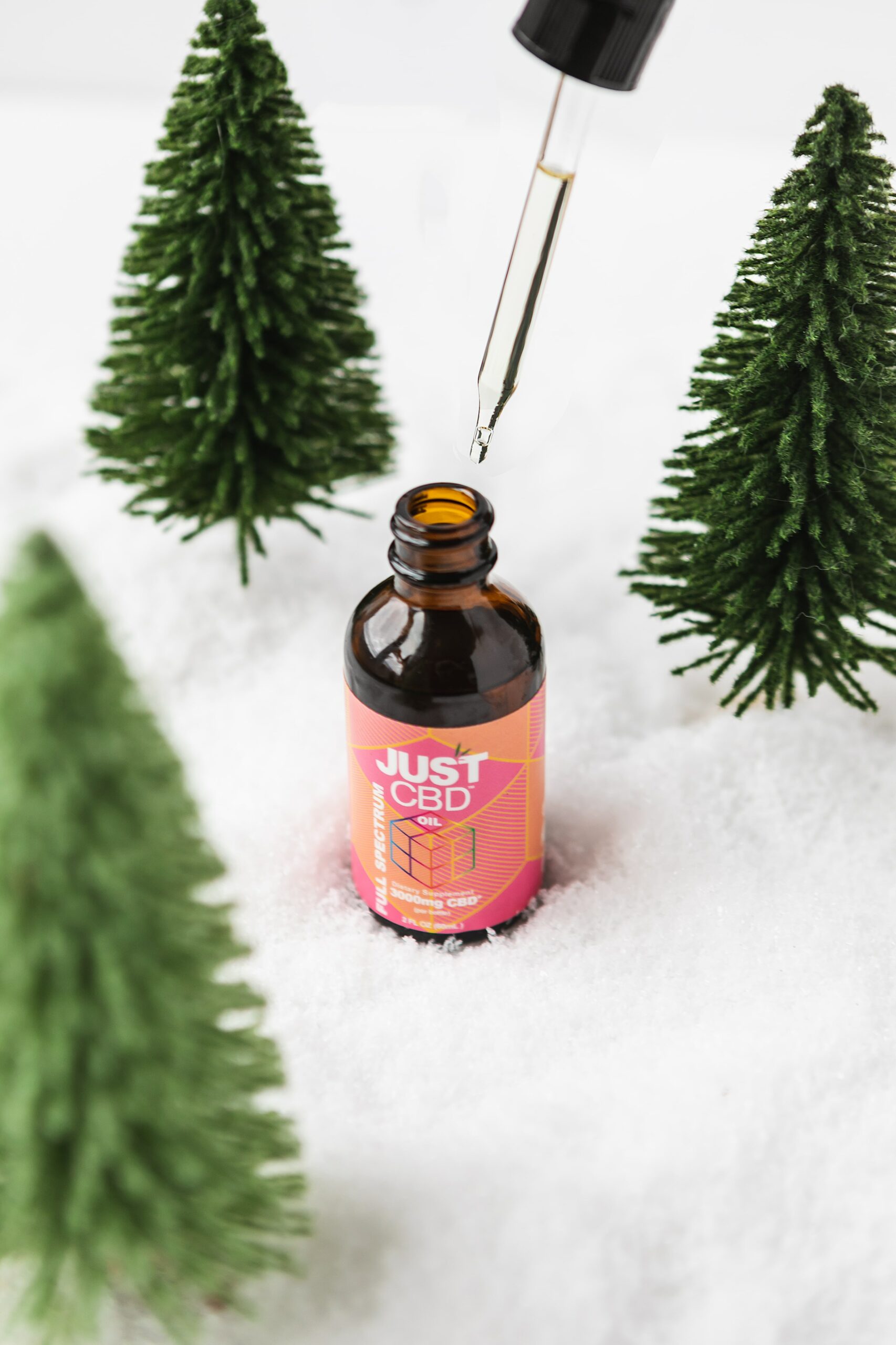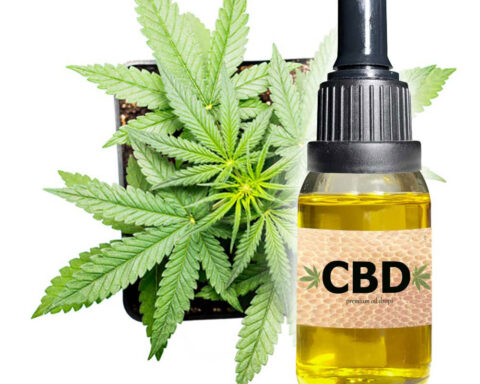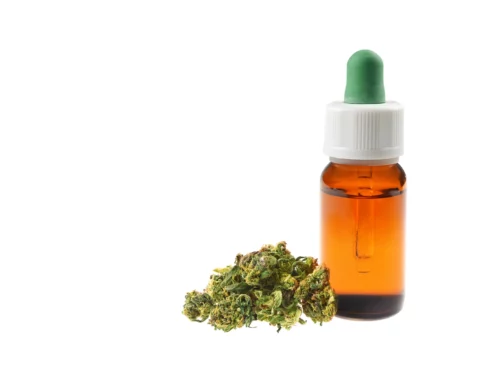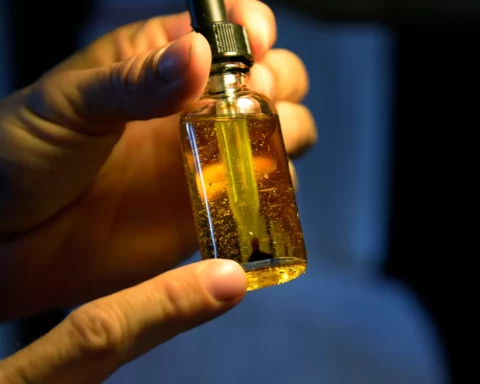The hype around CBD oil is increasing, and the cannabinoid is touted to have numerous benefits. However, there is not enough scientific evidence to show that CBD oil might offer such benefits. There is a need for advanced research to separate the truth from hypes. CBD oil can be in three formulations, full-spectrum, broad-spectrum, and isolate-based. Most consumers are unable to distinguish between these formulations. What’s the difference between isolate and full-spectrum CBD oil?
Isolate and Full-Spectrum CBD Oil: How They Compare
These are cannabinoids extracted from the cannabis plants, mostly hemp. However, full-spectrum CBD oil is made from whole-plant CBD, whose oil sources are hemp flowers, stems, buds, and stems. In contrast, isolates come from 99.9% pure CBD and have no cannabinoids (other than CBD), terpenes, or flavonoids. Full-spectrum CBD oil has terpenes and flavonoids, contributing to its full entourage effect.
The Benefits of Full-Spectrum CBD Oil
CBD oil enthusiasts prefer full-spectrum or whole-hemp CBD oil because of the full entourage effect linked to the terpenes, flavonoids, and other cannabinoids. In 2011, the British Journal of Pharmacology reviewed that full-spectrum CBD oil could fight fungal pathogens and infections, seizures, inflammation, pain, and anxiety. A study by Weston-Green, K. (2018) noted that the terpenes and flavonoids that add to their full entourage effect might have neuroprotective and anti-inflammatory properties. However, not every research agrees with the theory of the full entourage effect associated with the whole-plant CBD oil. For instance, a study by Santiago, et al. (2019) published in the Journal of Cannabis and Cannabinoids concluded that taking CBD oil terpenes did not change the CB1 and CB2 receptors, revealing that the terpenes and flavonoids might be working in other systems than the endocannabinoid system. Therefore, we cannot fully claim that full-spectrum CBD oil has some full entourage effect until studies clear all doubts and establish how the effect works.
The Cons of Full-Spectrum CBD Oil
While full-spectrum CBD oil might sound like the go-to option, it has various cons. The main concern with the full-spectrum CBD oil is the presence of THC. Most CBD brands deal in full-spectrum CBD oil whose THC concentration is less than 0.3%, which is within the federal limits for legal CBD oil. However, possessing full-spectrum CBD oil with more than 0.3% THC might land you in trouble, especially if you live in a state that still considers CBD oil illegal. Full-spectrum CBD oil with less than 0.3% will less likely make you high, but the same is not true for CBD oils whose THC concentrations exceed the minimum threshold. THC traces might build up in your system and make you fail a drug test when taking full-spectrum CBD oil regularly.
The Pros and Cons of Taking CBD Isolates
While CBD oil isolates are not as popular as full-spectrum CBD oil, they have some benefits. Isolate proponents prefer it over other types of CBD oil because they are purely CBD. They are the best option, especially for beginners who are unsure how their bodies might react to CBD oil. Isolate-based CBD oil does not have any odor or earthy tastes linked to broad and full-spectrum CBD oil. This is ideal for those who find the taste of CBD unbearable.
The only con of CBD oil in isolate form is that you will likely not enjoy the full entourage effect of multiple cannabinoids as in full and broad-range CBD oil. According to Gallily, et al. (2015), CBD oil isolates still offer some benefits, although there is a need for further studies to prove that CBD oil has health benefits.
When Are CBD Oil Isolates Right for You?
The following situations describe when CBD oil isolates might be ideal for you;
- When you are starting on CBD oil as a new regimen and are unsure about how the body might respond to CBD oil
- When you need pure CBD oil without any terpenes, flavonoids, or other cannabinoids.
- When you take drug tests from time to time and do not want to test positive for THC
- When you cannot tolerate the bitter taste or earthy aftertaste of full and broad-spectrum CBD oil
- When you want to enjoy larger doses of CBD oil since you can take high amounts of isolates without worrying about getting ‘high’ or experiencing negative effects
When Might Full-Spectrum Be Right for You
Most CBD enthusiasts go for full-spectrum CBD formulate products. However, you may want to know specific situations that might make full-spectrum CBD oil ideal for you. Here are situations that might you drive you to take full-spectrum CBD oil;
- When you enjoy the earthy tastes of CBD oil because of the cannabinoids, terpenes, and flavonoids therein
- If you want a product that has not undergone much refining
- When you want to enjoy the full entourage effects of terpenes, flavonoids, and other cannabinoids
Conclusion
The main difference between CBD isolates and full-spectrum CBD oil is that isolates have CBD and no other cannabinoids. In contrast, full-spectrum CBD oil has terpenes, flavonoids, and other cannabinoids than CBD. Full-spectrum CBD oil might be the best if you want to enjoy a full entourage effect of multiple cannabinoids. However, isolates are best for people who want to avoid the earthy flavor and taste of whole-plant CBD oil. Whichever choice you make, it is important to consult a doctor before trying any CBD product.
References
Gallily, R., Yekhtin, Z., & Hanuš, L. O. (2015). Overcoming The Bell-Shaped Dose-Response Of Cannabidiol By Using Cannabis Extract Enriched In Cannabidiol. Pharmacology & Pharmacy, 6(02), 75.
Santiago, M., Sachdev, S.,
Arnold, J. C., Mcgregor, I. S., & Connor, M. (2019). Absence Of Entourage:
Terpenoids Commonly Found In Cannabis Sativa Do Not Modulate The Functional
Activity Of Δ9-THC At Human CB1 And CB2 Receptors. Cannabis And Cannabinoid
Research, 4(3), 165-176.
Weston-Green, K. (2018). The
United Chemicals Of Cannabis: Beneficial Effects Of Cannabis Phytochemicals On
The Brain And Cognition. In RecentAdvances In Cannabinoid Research. Intechopen.
- Is Mushroom Coffee Worth the Hype? An Expert’s Take - April 19, 2024
- Missionary Position – Least Likely To Bring You To Climax - April 7, 2023
- Vibrators could put you in Jail - March 31, 2023









